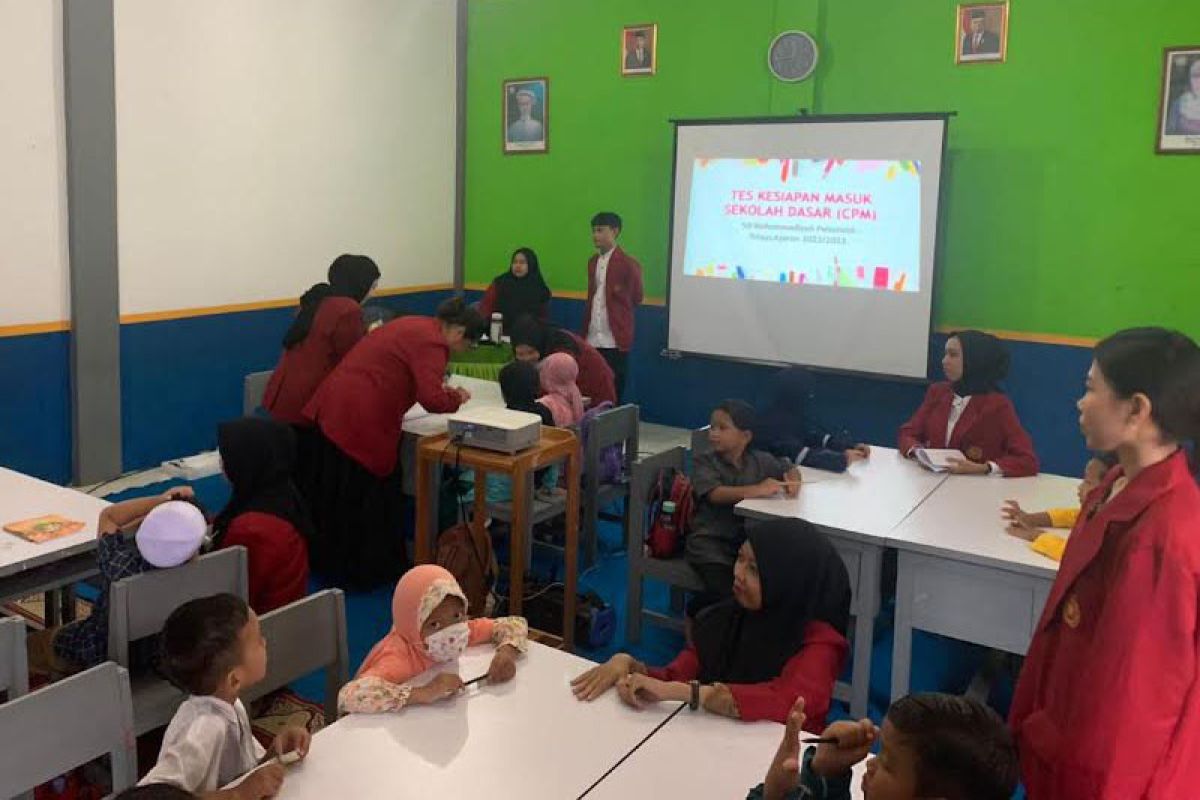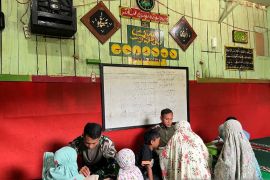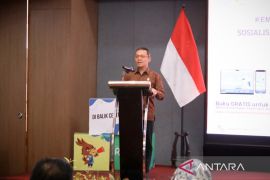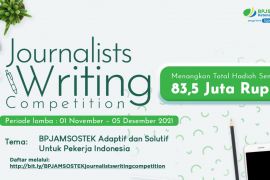It will become the basis for imposing strict sanctions.Jakarta (ANTARA) - Reading, writing, and arithmetic (calistung) tests are no longer an admission requirement for first grade elementary school (SD) students, Education, Culture, Research, and Technology Minister Nadiem Anwar Makarim has decided.
He announced his decision while launching the 24th Episode of Merdeka Belajar (Freedom in Learning) entitled “Pleasant Early Childhood Education (PAUD)-SD Transition” at the end of March 2023.
The tests have been removed from elementary school admission requirements to support children in receiving basic education since it is their right, he said.
However, is it really a new policy?
For years, the Education, Culture, Research, and Technology Ministry has issued new regulations regarding the implementation of admissions to SDs and none of the provisions have stated that calistung tests need to be conducted.
The minister admitted that the implementation of such tests has long been prohibited, based on Article 69 Paragraph 5 of Government Regulation Number 17 of 2010 regarding the management and implementation of educational activities.
In addition, the government has prohibited calistung tests through Article 12 Paragraph 4 of the Education and Culture Minister’s Regulation (Permendikbud) Number 14 of 2018 concerning the admission of new students at kindergartens (TKs), SDs, junior high schools (SMPs), senior high schools (SMAs), and vocational high schools (SMKs).
Permendikbud Number 1 of 2021 on the admission of new students to TKs, SDs, SMPs, SMAs, SMKs, and equivalent educational institutions also forbids the tests, Makarim noted.
According to the national coordinator of the Education and Teachers Association (P2G), Satriwan Salim, the prohibition on calistung tests is not new.
"In fact, Mr. Nadiem (Makarim) had also issued a similar prohibition in Permendikbud Number 1 of 2021 concerning PPDB (admission of new students) Article 30 Paragraph 3, which states that the selection of prospective first-grade students must not be carried out based on reading, writing, and/or arithmetic tests," he highlighted.
However, despite the prohibition, the tests have continued to be a requirement for new student admissions for more than a decade.
Hence, supervising the implementation of the regulations has become a pressing matter, the P2G national coordinator said.
It is possible that the tests have continued due to a lack of supervision from the Education, Culture, Research, and Technology Ministry as well as regional education offices.
Thus, the government needs to regularly monitor, supervise, and evaluate the new student admission process implemented by each school.
The government should also announce to the public in the future which elementary schools continue to break the rules by still carrying out the tests.
"It is necessary to note which elementary schools continue to conduct the calistung tests. It will become the basis for imposing strict sanctions," Salim added.
His party expects that the prohibition on the tests will not only be strengthened by the issuance of regulations without any well supervision in all schools as well as firm punishment for violators.
Systemic changes
In the 24th Episode of Merdeka Belajar, the minister also said that he expects advocacy or persuasive communication to clear misconceptions about making calistung tests a requirement for entry into elementary schools.
He noted that many students have a narrow understanding of numeracy and literacy due to the misconceptions surrounding the calistung learning method.
Head for Advocacy at P2G, Iman Zanatul Haeri, said that collaboration among teachers and parents is required regarding the implementation of reading, writing, and arithmetic learning for children.
Teachers at PAUD and SD need to consider the negative impact on students’ psychological and social-emotional development due to a requirement by educational institutions to master calistung skills at an early age.
Learning calistung before their ideal age will greatly burden the children and make them feel insecure and inferior, or perhaps go as far as to consider themselves stupid because they cannot read, write, and do arithmetic although they have attended schools.
"We think that the learning plans at elementary schools should be developed to build children's character as well as to instill (life) values. School is a playground (for children) and learning activities should have a positive impact on children's development," Haeri remarked.
Teachers need to design learning plans to help children to develop well, build self-confidence, know about their environment, manage their emotions, as well as gradually grasp the basics of numeracy and literacy.
Furthermore, the mindset of the parents in educating their children, especially the ones in urban areas, needs to be changed.
A parenting style that pays attention to only the cognitive aspects of the children will eventually burden the children and deprive them of their own basic rights.
“Mostly, what drives parents to force their children to master calistung (at an early age) because they want to send their children to their favorite SD. They get worked up when they cannot send their children to their favorite SD," Haeri said.
Hence, many parents register their children for calistung courses from an early age.
According to secretary general of the Federation of Indonesian Teachers’ Union (FGSI), Heru Purnomo, in general, a child would only become capable of focusing on learning calistung once they turn six or seven years old.
"Because at that age, the child's sensory and motor skills have been ready (to learn calistung)," he explained.
He also noted that the policy issued by the Education, Culture, Research, and Technology Ministry should be followed up on by improving the textbooks used by first graders in elementary schools, which are mostly filled with long writings and readings.
Currently, the public is still waiting on whether Minister Makarim’s new policy will be followed by other supporting breakthroughs or not.
Furthermore, the implementation of the policy needs to be bolstered by supporting the ecosystem and supervision. Without these two aspects, the policy will not fully benefit the community.
So will the minister’s new policy manage to improve the implementation of the elementary school admission process that has been carried out for dozens of years? We will just have to wait and see.
Related news: Education must hone children's holistic abilities: Minister
Related news: Elementary school teachers foundation for education: Ministry
Related news: E-Reports to simplify reporting of student learning outcomes: ministry
Translator: Indriani, Uyu Liman
Editor: Azis Kurmala
Copyright © ANTARA 2023












